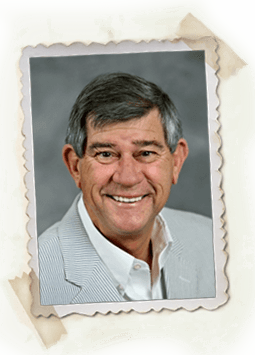 Thanks to author and columnist Ken Burger for this guest post! Graphic courtesy freedigitalphotos.net
Thanks to author and columnist Ken Burger for this guest post! Graphic courtesy freedigitalphotos.net
I’ve written and published three novels over the past five years and have learned one sure-fire, no-lie, absolute thing about marketing books. It ain’t easy.
I’m fortunate because I spent almost 30 years in the Charleston market writing a regular column for The Post and Courier. Having your name and face in a 100,000 circulation daily newspaper is certainly a plus when it comes to exposure.
And because I’ve done a lot of public speaking at Rotary, church groups and other civic clubs, I get a steady stream of invitations to speak, and therefore sell my books.
That said, whenever I’m at a book signing of any kind, I’m always approached by would-be authors who either have a desire to write a book or have a book they’d like to publish. I know how they feel because I was there not that long ago.
But here’s what I tell everybody who asks about book publishing: Once you’ve actually written a book, which 90 percent of the population can’t do; and once you have a publisher to publish your book, which 90 percent of those writers can’t do; you’re 20 percent done.
The other 80 percent of this business is marketing. And you’re the marketer.
Unless you’re Pat Conroy or some other million-selling author, you have to realize that those books don’t sell themselves. You’ve got to get out there and hustle for your book marketing by getting into small books stores, book clubs, civic organizations, almost anywhere you can draw a crowd of 10 or more people.
Small publishers like mine, Evening Post Books in Charleston, are wonderful venues for launching aspiring authors. But even they are limited in their marketing reach and basically depend upon the author to move the product.
Therefore, it helps to be an extrovert. You’ve got to be aggressive or else you end up with a warehouse full of books.
Remember, nobody loves your book like you do. And unless you can get up on your soap box and tell the world what it’s about and why they should read it, being an author can be very humbling and lonely experience.
 Ken Burger spent almost 40 years writing for two South Carolina newspapers. While writing sports for The Post and Courier in Charleston, Burger won numerous statewide writing awards and was named one of the nation’s best sports columnists three times. Burger topped off his journalism career by writing a popular metro column for the Charleston paper before retiring in 2011. His first novel, Swallow Savannah, was published in 2008. His second novel, Sister Santee, came out in 2010. Both novels were touted as among the best in Southern fiction by the Independent Publishers Association. Salkehatchie Soup, the third novel in Ken Burger’s trilogy of South Carolina stories, was published in 2013. Ken entertains himself and others with a blog at kenburger.com.
Ken Burger spent almost 40 years writing for two South Carolina newspapers. While writing sports for The Post and Courier in Charleston, Burger won numerous statewide writing awards and was named one of the nation’s best sports columnists three times. Burger topped off his journalism career by writing a popular metro column for the Charleston paper before retiring in 2011. His first novel, Swallow Savannah, was published in 2008. His second novel, Sister Santee, came out in 2010. Both novels were touted as among the best in Southern fiction by the Independent Publishers Association. Salkehatchie Soup, the third novel in Ken Burger’s trilogy of South Carolina stories, was published in 2013. Ken entertains himself and others with a blog at kenburger.com.

Good point. I’ve started the post-release stage of book promotion and wasn’t quite as ready as I’d hoped to get out and push myself as a writer, rather than just selling the book!
Go get ’em!
You are right on Ken. When one realizes that “tooting your own horn” is about 90 per cent of selling a new book as an unknown author, they have just begun to see the “tip of the iceberg”. Regardless of the quality of the work, it takes time and a lot of determination to convince readers to check it out.
The only way that this can be short circuited is to spend tons of money that few writers have access to, where other professional promoters sell for you.
Having spent my life as a public speaker, it comes easy for me but there is still the background work to be done in arranging engagements. If a writer does not have the means to hire someone to promote their work, they must learn to do it personally. It can be done but, like everything worth while, it takes determination and developing the needed skills.
I have seen many books of questionable quality making money for the author simply because of the merchandising machines behind them.
Ken, Spent last week at Sullivan’s Island and took Sweet Tea with me to leave on the coffee table for renters. Read it cover to cover first day. Loved it.Picked up Swallow Savannah at Royal Hardware next day and finished it by weekend. Loved them both. Looking forward to next two.
Thanks, Charles! Endorsements like that are better than any marketing tool I know of. Appreciate the kind words. Hope you enjoy Sister Santee and Salkehatchie Soup. It only gets worse. Ken
The word is COLLABORATION. You nailed it, Jacquie. For most of us, that is what is required in Publishing today. You can fight it and get left….or get on board.
True enough, Bren – or find someone to champion you as in the days of old… or like the days of old, be a penniless artisan and famous sometime in the next century 🙂
Great post; I often spend more time marketing than writing. Gun shows, county fairs, church fests, rodeos, civic clubs, history clubs, and Civil War reenactments have all been better for me than signings at book stores, though I’m happy to try one any time. I’ve had zero luck with book clubs; can’t even win an invite, because of my genre I guess.
Thanks, Everyone. Interesting conversations. Ken
“…Remember, nobody loves your book like you do. And unless you can get up on your soap box and tell the world what it’s about and why they should read it, being an author can be very humbling and lonely experience.”
And when you do, you get branded a shill. When you don’t, then nobody knows you’re alive. But when you do, you’re pushy and obnoxious and eeevil – even when you’re allowed to do it, which in many venues you are not. Go join an Amazon book discussion – and even if your book fits Every. Stated. Criterion., They, Mention – you say your book’s name and utter the heinous fact that you wrote it and you’re booted out of the forum post haste.
Yes, it helps to be an extrovert. I am not one. If I were one I would probably not be in a position where I enjoy the, you now, WRITING part (the solitary quiet writing part) of this equation quite so much. I am not a salesperson, I never was, I can’t be, I couldn’t sell water to a man crawling in thedesert – I could write a novel about the water and the man, to be sure, and the story would be beautiful and poignant and all like that, but when it comes to extracting payment for the water and the man said to me, well, I’m no longer thirsty now and I’ll be on my way thanks ever so much , I’d probably sink back into the sand and sing my songs alone again. Here’s the salient point – WHY should the writer be the marketer AS WELL? If I wanted to be in sales I’d do that for a living. I wanted to be – I *AM* – a writer. These two things are NOT really compatible at their core, and I for one think it is bitterly unfair that someone who is a wonderful writer but can’t bring themselves to wear a billboard saying that they’re the greatest thing since sliced bread should get relegated to the scrapheap just because they aren’t able to step into a used car salesman’s shoes at the drop of a hat. And once you hit a certain threshhold, it becomes moot anyway. JK Rowling doesn’t have to “climb on her soapbox”, does she? She gets all the publicity in the worled even – perhaps especially – when she writes under a pseudonym. It has always been thus. The people whose work could USE the publicity – the lower-down writers, the midlisters, the not-yet-quite-household-names – they don’t get it, because it is lavished instead on people whose names everyonre out there already knows, whose next book has pre-sold in the hundreds of thousands before it is even printed, and that would have happened without full-page and full colour ads in prestigious publictations or pre-publication interviews in the likes of the Guardian and the New York Times.
I’ve done public speaking. I am not BAD at it. But I suck mightily at selling MYSELF – oh, I’ve forced myself to be proactive, but that’s what it is, it’s an effort and a trial, and I need serious down time after such events to pull myself back together. It is HARD. It is much harder to give a public talk lasting ten minutes than to spend eight hourshunched over a keyboard tapping away – at least for some of us, it is.
Tell you what, why don’t all y’all go off to Amazon or somewhere and pick up one of my books (there are plenty to choose from) and thenYOU tell ME what you thought about them. That’s a MUCH better way of getting people to read one’s books. *HAVE OTHER READERS TALK ABOUT THEM*. How about it…? If you read one, and want to write a review of it, you can do it on said Amazon or elsewhere or else get in touch with me and send me a report and I’ll put it on my website. I’ll go the extra mile to make your opinion known.
Ken, as an aspiring author myself, when I attend book presentations, I put myself in the presenter’s place and observe their audience as “my” audience. I can’t recall anyone who has specifically told us why we should buy their book. It is implied, but not specifically stated. Thoughts?
Thanks, Barbara! Some authors feel they are ‘above’ selling. It can be subtle, but it must be done. If not you, who? Ken
Thank you for your response, Ken. “You can read more about that on page 73.” Not so subtle after all.
Interesting view point from an experienced author. I’m still amazed that so many authors are still unaware of this new age of collaboration…. code for, AUTHOR get out and sell your stuff! Great graphic, btw. 🙂
Thanks, Jaqueline! It’s a frightening reality for new authors. Even tougher on introverts. Ken